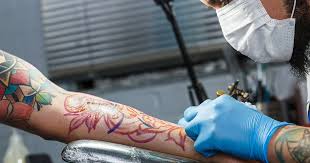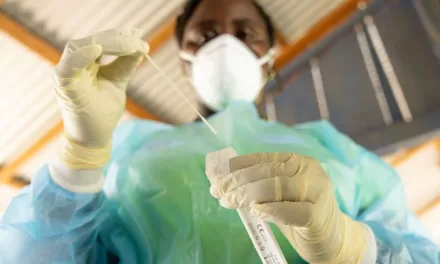In recent years, tattoos have surged in popularity, particularly among young people who use body art to express their individuality and passions. However, this trend comes with significant health risks, as highlighted by medical professionals on Wednesday.
Doctors are cautioning tattoo enthusiasts about the potential dangers of getting inked. According to Suhail Qureshi, Additional Director and Unit Head of Medical Oncology at Fortis Hospital Shalimar Bagh, the primary health concerns stem from the possibility of infection due to unsterilized needles. These infections can lead to serious diseases such as Hepatitis B, Hepatitis C, and HIV.
A recent study by researchers at Lund University in Sweden examined 11,905 individuals and found a higher risk of lymphoma among those with tattoos. The risk was particularly pronounced in individuals who had received their first tattoo within the past two years. The study indicated that large B-cell lymphoma and follicular lymphoma were the most common types associated with tattoo exposure.
Dr. Tushar Tayal, Consultant in Internal Medicine at CK Birla Hospital in Gurugram, explained the connection between tattoo ink and cancer. “Tattoo ink often contains polycyclic aromatic hydrocarbons (PAHs), which are known carcinogens. When injected into the skin, the body identifies the ink as a foreign substance, prompting an immune response. A significant portion of the ink is transported from the skin to the lymph nodes, where it is deposited,” Dr. Tayal stated.
In addition to the Swedish study, Australia’s Department of Health conducted a survey on tattoo ink composition. The survey revealed discrepancies between the labeling and the actual contents of the inks. Notably, PAHs were found in 20 percent of the samples tested and in 83 percent of the black inks. The inks also contained hazardous components such as heavy metals (mercury, barium, copper), amines, and various colorants.
“These harmful chemicals can cause a range of health issues, from skin problems to more severe conditions like skin cancer,” Suhail Qureshi warned. He further explained that these chemicals could be absorbed into the body’s lymphatic system, potentially increasing the risk of other cancers, including liver, urinary bladder, and blood cancers such as lymphoma and leukemia.
The lack of strict regulation regarding tattoo ink composition exacerbates these risks. “While not all tattoo inks contain these carcinogenic chemicals, it is crucial to exercise caution when getting a tattoo. In India, there are currently no regulatory frameworks governing this,” Qureshi emphasized.
Until healthcare authorities implement stringent regulations on tattoo ink ingredients, the risks associated with tattoos will persist. As the popularity of tattoos continues to rise, it is vital for individuals to be informed about the potential health hazards and to seek reputable tattoo parlors that adhere to strict hygiene and safety standards.











